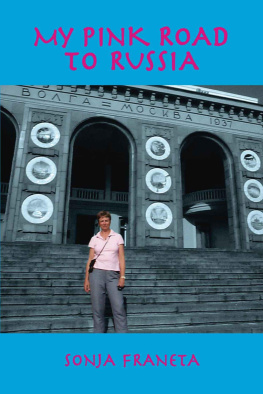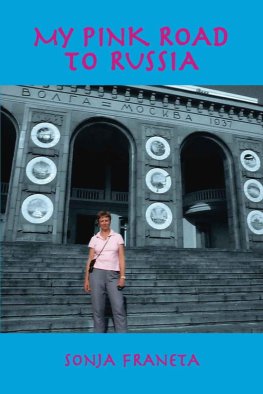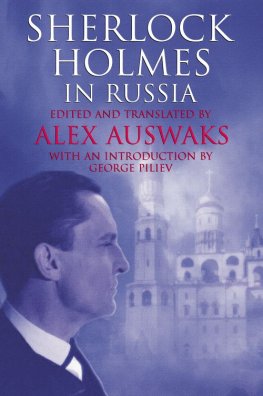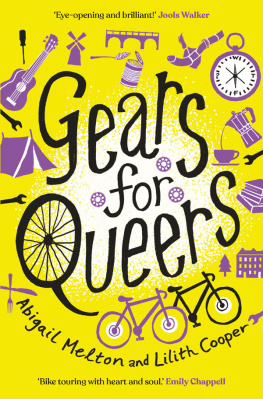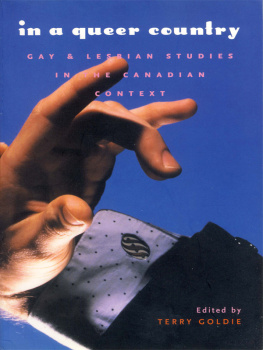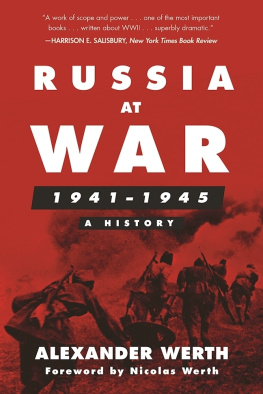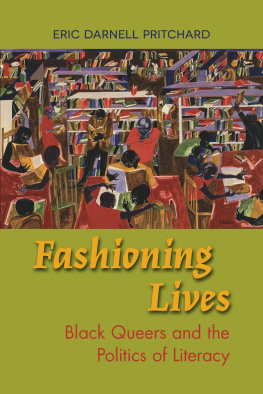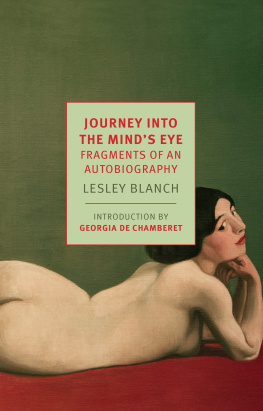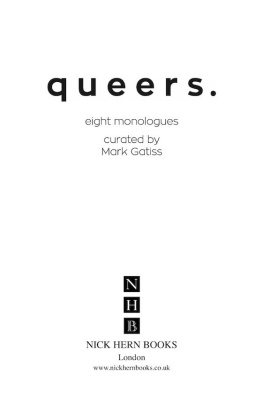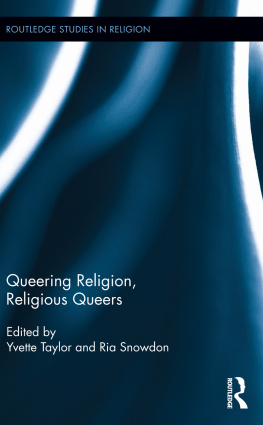Sonja Franetas My Pink Road to Russia is a beguiling and heartfelt booka fascinating pastiche of memoir, poetry, history and cultural studies that opens a window onto the once-hidden world of Russia's queer community. What makes Franeta's work so valuable and haunting is not only her observant and touching portraits of the people she meets--Siberian lesbians, transsexual train conductors, gay men who survived the gulag, and a host of others--but also the reader's awareness that the remarkable flowering of post-Soviet LGBT life and culture, portrayed so eloquently by Franeta in these pages, appears to be disappearing quickly in the current Putin era.
David Tuller, author of Cracks in the Iron Closet
What an inspiration when the American activists came to Russia in 1991! After Sonja Franeta entered the Russian LGBT community, she traveled to Siberia and Moscow, Saint Petersburg and Kaliningrad, capturing the stories and her own impressions of our queer culture. In interviews collected by Sonja for her previous book Pink Flamingos we heard the voices of real people. This voice of honesty rings through Sonja's present book of stories. It is particularly valuable in Russia at this time, when we have been forbidden to talk about LGBT issues.
Olga Gert, editor of Moscow feminist journal Ostrov (Island)
Sonja Franetas latest book, Pink Road to Russia: Tales of Amazons, Peasants, and Queers, takes readers on a journey of awakening love from the Bronx to Moscow, through Croatia, South Africa, San Francisco, to Siberia and many other lands in between. True to her teaching profession, Franeta reveals in richly detailed stories how war, family violence, politics and borders are no match for same-sex desire. Allowing readers a rare and poetic glimpse into 70s and 80s U.S., and later post-Soviet, sexuality, she proves that there are no limitations when it comes to expressions of the heart.
Sharon Horne, PhD, writer and researcher of LGBTQ issues
My Pink Road to Russia
Tales of Amazons, Peasants, and Queers
By Sonja Franeta
Dacha Books
Oakland, California
My Pink Road to Russia
Copyright 2015 Sonja Franeta
Dacha Books
Oakland, California
www.sfraneta.com
ISBN: 978-0-9904928-0-1
For my sister, Gina
And For all those who shared their stories
Introduction : An Invitation to readers
Part 1: Bronx Beginnings
Girlfriends
Escape to America
Imperfect Glass
The Pigeons of HeideN
Pilgrimage
After Church
Mamica
Peasant Roots
My Violin Loves to Play
Part 2: Activist
Emerging Voices
Can Factory Sonnets
Woman Machinist
KosovO Diary: June/July 1999
South Africa: For Nelson Mandela
The Rest Is Poetry: Why We Come Out
The Real poem
Part 3: Journeys and Interviews in Russia
Revolutionary Romances
Siberians: Two Interviews
Amazon Sisters on the Trans-Siberian Railroad
The Siberian Interviews Journal: July 1995
Eighteen Years in the Gulag: Kuzmich
In the Crimea
Flowers for Sveta
Meeting ShamanS
Smitten with Lyuba
Sissies and Queers
Who Was Sophia Parnok? 289
Kaleidoscope
My Tsvetaeva
Interview with Me
Acknowledgments and Notes
Bibliography 332
About the Author 336
What do you know and what do you just believe?
Linda Hogan, Power
Introduction
An Invitation to Readers
An Invitation to Readers
Welcome to a book about some of the people and stories I have encountered on my life path. It is a collection of essays and memories of the journeys and thoughts of a Bronx lesbian with Slavic roots. I invite you to meet some of the wonderful queers, peasants, and Amazons I have encountered along my pink road to Russia. Rozovyi, the Russian code word for lesbian, is also in the title of my first book in Russian, Rozovye Flamingo (Pink Flamingos). And pinko is a pejorative word for socialist in English.
There are so many more stories I could have included in this book. For example, theres the time I went to a bathhouse in St. Petersburg with my friend Irina whom I had recently interviewed. Irina was heterosexual but very queer-curious, and liked to hang around with me and show me her great city, which had just changed its name from Leningrad, so people would often slip and call it that still. I imagined Irina the descendant of survivors of the Siege of Leningrad during World War II. What history I felt in that city!
We went to her favorite bathhouse in old St. Petersburg, and I followed her in her rituals, first washing with a bowl of warm water along a countered and mirrored wall, using soap and various rough scrubbers and oddly shaped sponges, then going into the dark multileveled steam room, where there were a few other women, all nude, with kerchiefs wrapped around their heads. One woman poured water regularly over some hot rocks for the steam effect. After being in the silence for a while, Irina and I went back to the main room, where we rinsed and scrubbed ourselves again and dried off with sheets we had been using. She had been coaching me in a low voice the whole time. Irina said I should follow her into the room next to the lockers to have some tea. And not get dressed? I asked. She said no and ushered me into a toasty but messy room with a table in the center where two other women sat, totally unselfconscious about wearing nothing but a kerchief. We were all women, after all.
As we sipped our tea, Irina talked with the other women as if she knew them from her regular visits. There were no introductions made; people didnt tend to do that in Russia the way we might do in the U.S. I sat quietly and listened, drinking my tea. Suddenly the door opened and I heard male voices. Two rough-looking guys in striped polyester workout jumpsuits came through the room rolling a big truck tire. What was going on? My first instinct was to cover myself, but the other women just continued talking. The men came in one door and went out another door, mumbling nonchalantly. It was not a voyeuristic thing, and the women did not seem perturbed in the least. This was a snapshot of early 1990s Russiaa naive innocence about sex and gender and a certain claptrap way of doing things.
Yes, many stories are missing, but the book holds many more in the form of memoir, fiction, poems, interviews, and a talk. The narratives are based on meetings and interviews I had with family members and with those I met on my travels. Experiencing another person, beyond the interview, can have a strong effect, as did my friendship with Irina, and many others.
I had become very interested in Russian culture because I studied it and because of my Slavic roots. My family came to the United States from Yugoslavia after World War II. I have yearned to know more about my parents backgrounds and what their lives and families were like before they settled in America. This search and my interest in Russia is not only an ethnic one but an interest in people telling their stories and what mattered to them. Also, I consider Russian queers to be family.
I have never lived a traditional life. I came out as a lesbian when I was twenty-five, and meanwhile became a political activist and continued into teaching English and living on a boat. All the while Ive been a writer. My calling is all this and more, not one thing.
I was born in the Bronx, near the water. The Harlem River was in the view of our house in my teenage years. I used to watch sunsets from the little porch from the Bronx side of the river, the sun blazing over Dyckman Street in Manhattan. After reading a book that described old New York as teaming with streams beneath all the concrete we have today, I realized the streams beneath it now help the water and sewer systems function. I think of water flowing out and throughout the globe. We are all connected.
Next page
